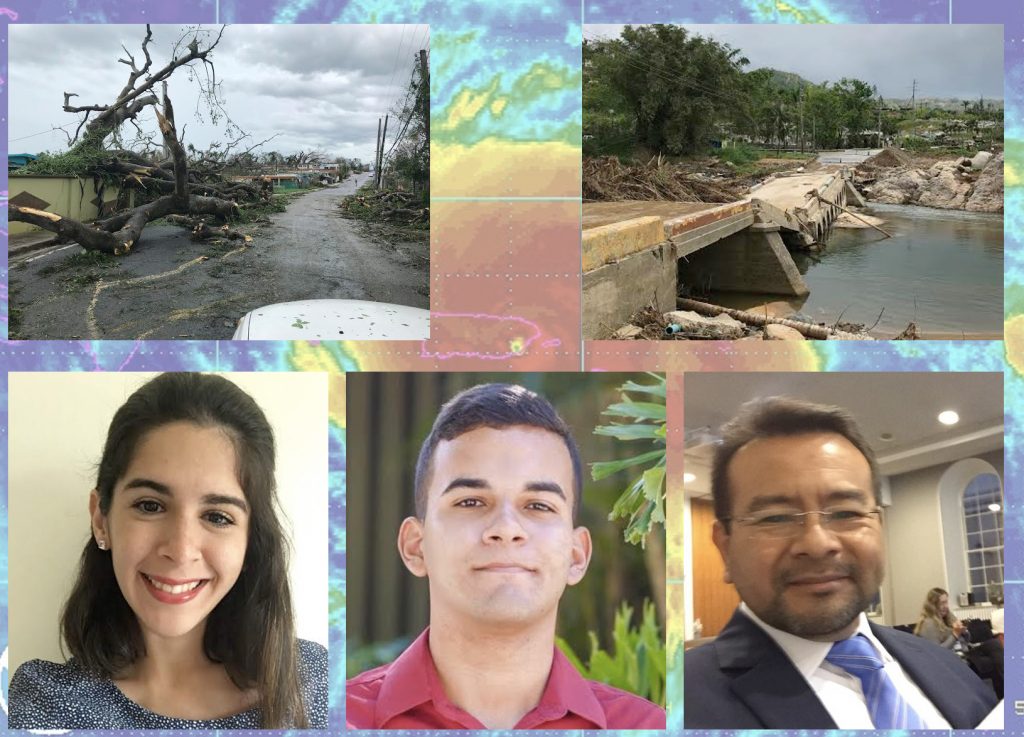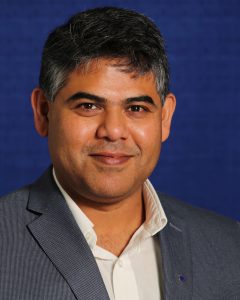
Three CRC Summer Research Team (SRT) partners from 2020 have been awarded follow-on funding through the Department of Homeland Security (DHS) Science and Technology Directorate (S&T) Office of University Programs’ (OUP) Minority Serving Institutions (MSI) program. S&T announced last month that nine faculty members across the DHS Centers of Excellence have been selected to receive follow-on funding to continue their Summer Research Team (SRT) program.
CRC partners receiving continued funding are:
- Dr. Sambit Bhattacharya, Fayetteville State University
Project: Storm Surge Prediction with Physics-Guided Machine Learning Models. - Dr. Mauricio Cabrera-Rios, University of Puerto Rico-Mayaguez
Project: Enhancing Personal Decision Making During and After a Hurricane to Preserve Wellness. - Dr. Liping Liu, North Carolina Agricultural and Technical State University
Project: Combined Atmospheric-Storm Surge Modeling of Hurricane Florence (2018).
In 2020, Dr. Cabrera-Ríos worked with CRC Executive Director Tom Richardson and Education & Workforce Development Director Dr. Robert Whalin of Jackson State University on a project called “Individual Emergency Response and Recovery: A learning experience from Puerto Rico’s encounter with Hurricane María.” Along with UPRM graduate student Véronica Diaz-Pacheco and undergraduate Frederick Gonzalez-Roman, they developed an operations research model to assess the compound wellness level of individuals who experience hazards such as hurricanes.
As described in their final report, the team created an app, iWILL (Individual Wellness Inventory Level Log), that queries users every two hours during disaster events. The app would register detrimental events, reflect the decrease in the person’s wellness and propose up to three restorative measures from which the user can choose.

Dr. Liu worked with CRC Lead Principal Investigator Dr. Rick Luettich of the University of North Carolina-Chapel Hill on a project called “Combined Atmospheric-Storm Surge Modeling of Hurricane Florence (2018).” Along with NCA&T graduate student Tiana Johnson and undergraduate student Jackson Wiles, the team studied the Weather Research and Forecasting (WRF) atmospheric model to improve weather research and forecasting research capacity at NCA&T.
In their final report, the NCA&T team found that overall, the WRF results matched reasonably well with the observation data after two-day simulations, though the storm track accuracy is sensitive to the region being simulated and other parameters. Dr. Liu plans to integrate research findings about numerical prediction of severe weather events into courses at NCA&T. Johnson and Wiles wrote about their experience in a CRC blog post.

Dr. Bhattacharya worked with CRC researcher Dr. Brian Blanton of the Renaissance Computing Institute at UNC on a project called “Storm Surge Prediction with Integration of Physical Knowledge in Machine Learning Models.” They and students Raymond Kimble and Grace Vincent used artificial intelligence and machine learning to create an advanced hybrid model trained with experimental and simulated data to predict storm surge.
In the team’s final report, they report that their aim was to integrate an artificial neural network with the physical modeling of ADCIRC for making storm surge prediction, thus reducing computing resources used while maintaining accurate predictions.
Learn more about last summer’s projects at https://coastalresiliencecenter.unc.edu/2020/09/ai-modeled-hurricanes-combined-surge-modeling-and-wellness-apps-summer-research-teams-complete-10-week-projects/
The SRT Program, administered by S&T’s OUP, engages early-career faculty, undergraduate, and graduate students in a 10-week research experience hosted by a DHS Center of Excellence. The program provides opportunities for participants to better understand DHS’ mission and research needs, thereby fostering critical advancements in DHS’ core research areas. The program aims to integrate the intellectual capital of the nation’s MSI community with DHS’ scientific leadership in order to enhance and inspire the next generation of homeland security thought leaders, helping to build a cadre of university students and faculty who are well-qualified, diverse and ready to enter the homeland security science and engineering workforce.
